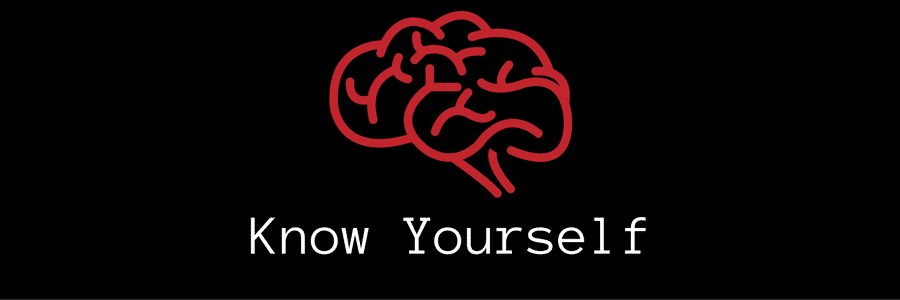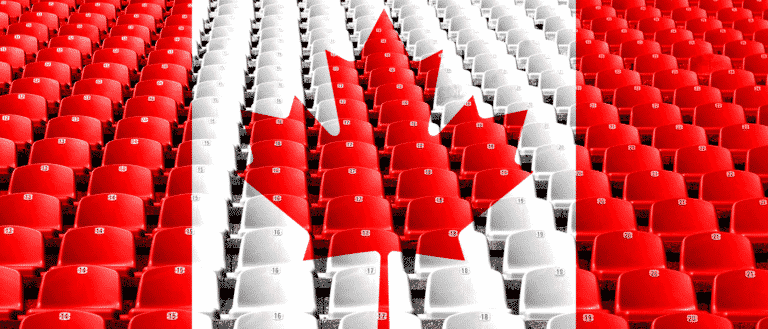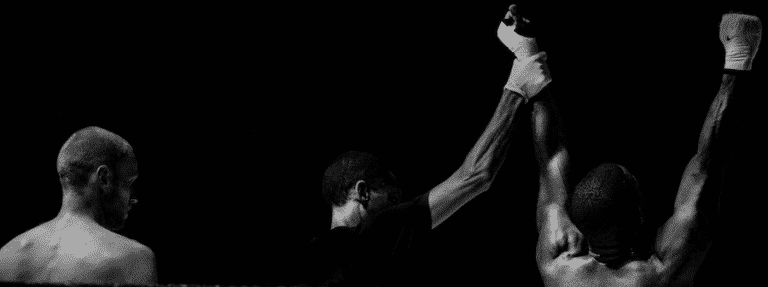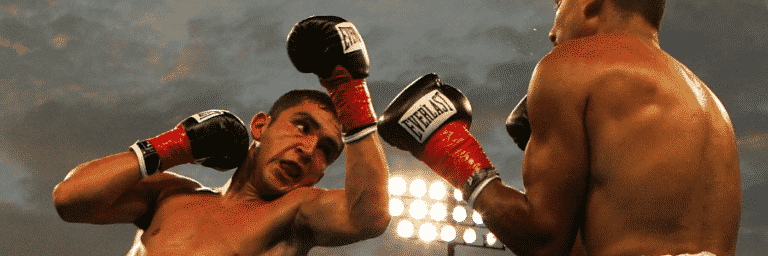Know Yourself to Make Better Betting Decisions

Your brain is both your greatest weapon and your worst enemy in betting. It gives you the ability to analyze the odds and make informed decisions. On the flip side, the way the human mind works often results in confusing feedback that plants the seeds for poor decision making in games of chance and skill. The same rewards center in the brain that evolved to help us survive threats and gain resources is not very well equipped to deal with the random happenstance inherent in gambling.
It is my firm belief that many losing punters and poker players actually have the skills and knowledge to be long term winners. Where they go wrong is in making the occasional counter-logical decision that costs them just enough to wipe out any gains.
The line between winning and losing in poker and sports betting is thin. Even the biggest winners in the world do so by exploiting a very small edge over and over again for larger and larger stakes. All it takes is a few timely mistakes to push a potential winner into losing territory. One rage induced tilt-fest at the poker tables is more than enough to wipe out an entire week’s worth of solid play. The same also applies to sports betting.
In the many times I have written on these topics, I relied primarily on personal experience and anecdotal accounts to make my points. As nice as experience and anecdotes are, actual studies are even better. Today’s post will offer a little bit everything in an effort to fully explain how to make better decisions and why the principles discussed here are valid.
Understanding and Avoiding Tilt
Have you ever had one of those betting days where it seems like nothing can go your way? In poker, imagine the lucky fish across the table who hits improbable draw after improbable draw. In sports betting, imagine the ridiculous error or poor call that costs your side the match. What should have been winning positions can turn into losing positions by a single stroke of bad luck.
Play enough poker or bet on sports frequently enough and it is practically a guarantee that you will eventually hit a stretch where the proverbial coin lands on tails time after time. No matter how much skill may be involved over the long run, the short run is full streaks that will sometimes work against you. That’s just how it is.
Bad runs happen to everyone, no matter how skilled. Stretches of bad luck are in themselves not all that damaging. If you play well and keep the odds on your side over the long run, things tend to even out and you will get back on track. What is damaging is a bad reaction to a bad stretch.
“Going on tilt” refers to letting your emotions impact your decisions moving forward. Tilt affects both poker players and people who bet on sports, but nowhere is tilt more obvious than at the poker table.
As a former professional poker player myself, I cannot begin to tell you how many times I have seen another solid player lose a hand he should have won due to simple bad luck and then go on to compound the losses by playing a super aggressive, angry game. Time after time, these players would blow up on the very next hand, make big bets for no discernible reason, try to bluff at big pots and then lose even more money. This would set off a vicious cycle that would only end once the player ran out of money and left the table.
A 2012 study found that a typical case of tilt comprises a number of stages. First is a “dissociative feeling,” the sense that something unbelievable just happened to result in monetary loss. Up next is “moral indignation,” followed by “chasing behaviour” in an attempt to right the perceived wrong. Afterwards, players experience disappointment, depression and/or anxiety.
Sports bettors experience something similar when their bets all just happen to fall the wrong way. They all too often feel cheated, place additional bets out of anger or a sense of desperation to get even and end up throwing more good money down the drain. Tilt is the single most destructive behaviour that will get even the most talented gamblers in trouble.
There are two important things you can do to combat the effects of tilt. One is to simply understand the process and be aware of it. Understanding what is happening emotionally after a stinging loss will help you acknowledge that you may be about to experience a case of tilt. This will allow you to take the second step in combating tilt and simply remove yourself from the situation. If you start to get that sense of disbelief, anger and anxiety, it’s time to call it a day and take a break.
That same study referred to above also found that experienced players tend to express a “more mature disposition” when confronted with terrible luck. It is useful to understand how tilt works so that you can avoid compounding your losses after a bad day.
The Rush You Get from Near-Misses is Fake
A study published in the journal Neuron and reported on by Scientific American found that near-misses motivate gamblers to keep on playing. This particular study focused on slot machines (the example they use is getting two cherries out of three at a slot machine), but it likely applies to other forms of betting as well.
Researchers found that a near-miss activates the same areas of the brain that are activated when a gambler achieves an actual win. We can easily extrapolate similar circumstances in sports betting and poker. In poker, imagine the player who folds a flush draw only to see that the next card would have completed his flush had he stayed in. In sports betting, imagine the bet that would have come through had the ball sailed into the goal rather than bouncing off the crossbar.
In a different study, researchers found that a near-miss activates the brain’s dopamine-releasing rewards center in the same way that an actual win does. In other words, gamblers receive the same positive feedback from their brains in a near-win that they receive from an actual win. Once again, extrapolate this to poker and sports betting and players receive positive reinforcement for making the wrong decision. This sets a dangerous precedent.
Know that the rush you get from near-misses is fake. One of the old adages in poker is to separate results from actually making the right decision. Activities such as poker and sports betting are confusing to our brains’ reward systems. Keep this in mind the next time a stroke of good luck saves your bacon. Likewise, keep this in mind the next time you make the best possible decision given the information but get a poor result.
Lack of Sleep is Conducive to Poor Decisions
One part of knowing yourself for better results is to recognize when you’re tired. A study conducted by Duke University researchers took a look at the effects of sleep deprivation on 29 volunteers by keeping them up all night and then prompting them to play gambling games. Those same people were also tested after a normal night’s rest and the results were clear.
Brain scans on the volunteers showed that gamblers who were sleep-deprived showed increased activity in the “ventromedial prefrontal cortex” area of the brain, which is associated with fear, risk and decision-making. These same volunteers simultaneously showed a drop in the “anterior insula” region, which deals with emotion and addiction.
Ultimately, researchers found that gamblers dealing with sleep deprivation resulted in the brain encouraging them to seek gains while discounting the impact of potential losses. Researchers also concluded that caffein and other stimulants “may be inadequate for overcoming these decision biases.”
The takeaway here is obvious. Don’t bet on sports, play poker or visit the casino when you’re short on sleep. Not only is just not fun to make tough decisions when your’e exhausted, but your brain may be actively working against you as you try to make the best decision possible at each juncture. If you’re feeling tired, it may be best to just go get some sleep and come back another day when you are well-rested.

Wes Burns has more than a decade’s worth of experience as a writer, researcher, and analyst in the legal online betting industry and is co-founder of OnlineBettingSites.com. Wes approaches his work from the viewpoint of players.



